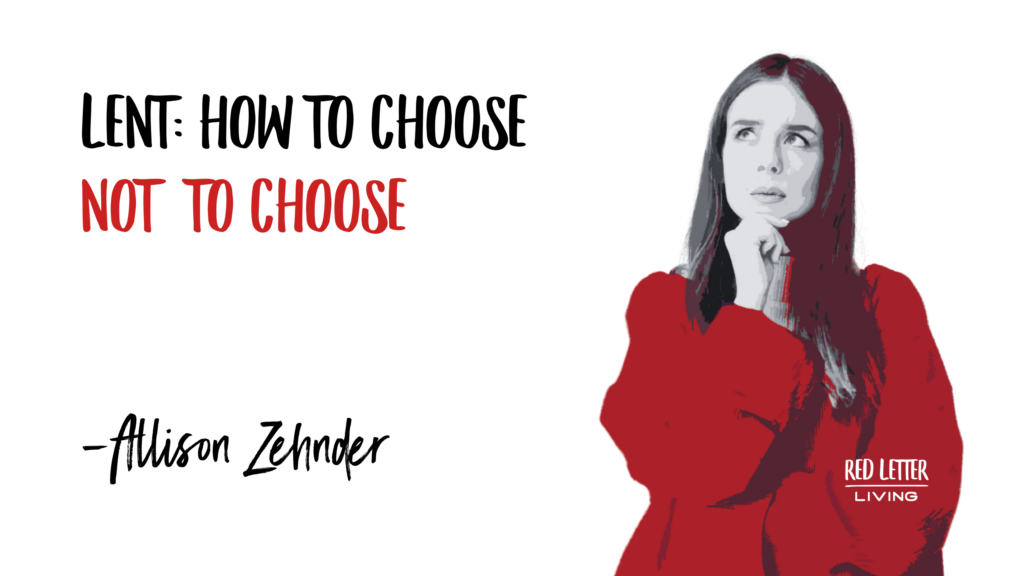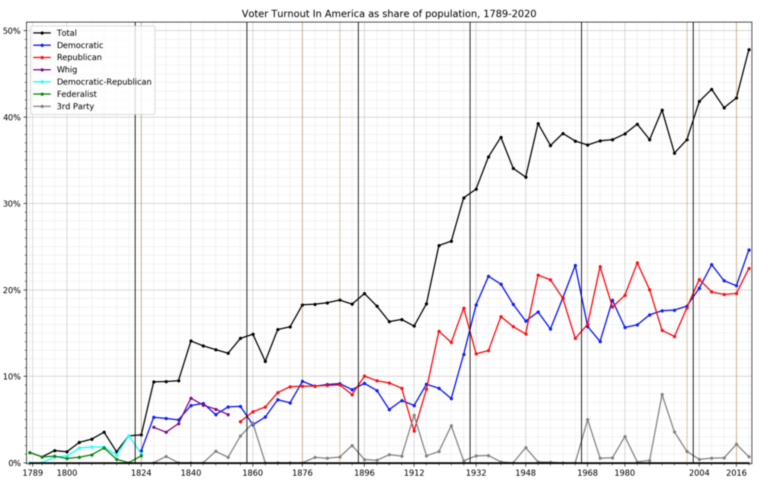

There’s no other culture in the world that thinks making good choices will be easier with more options than Americans.
From the beginning, choice was important to those at the founding of our country. Thomas Jefferson said, “Freedom is the right to choose: the right to create for oneself the alternatives of choice. Without the possibility of choice, and the exercise of choice, a man is not a man but a member, an instrument, a thing.” Business tycoon Andrew Carnegie continued to make choices his king claiming, “the men who have succeeded are men who have chosen one line and stuck to it.”
The worship of choice continued to the modern day. Musical band Journey famously crooned, “Anyway you want it, that’s the way you need it, anyway you want it.” But it’s not just the arts that encourage our desire for choice. Those who travel outside the country will find food substitutes are rare, even forbidden. To an American, this is unfathomable. Burger King’s advertising slogan promises endless choices to support that opinion with their slogan, “Have it your way.”
Barry Schwartz, the author of The Paradox of Choice said it this way; “We want to be able to choose everything that matters, as well as the things that don’t. In terms of fetishizing the idea of choice, the U.S. is the absolute pinnacle.” It isn’t surprising then, that our obsession with choice extends beyond political and commercial to touch our spiritual life. Personal and religious freedom became linked for the first time in world history when the Protestant colonists no longer wanted to be ruled by a church or government in Europe.
We are obsessed with having choices, but we don’t always actually use them. We just want to have them. While the percentage has grown, still only half of the population shows up to vote, barely scraping 50%.

So it stands to reason that Lent, whether you choose to observe it, like everything else, is a personal choice. A choice most Americans are not choosing. According to a YouGov survey, while 71% of Americans participate in the Easter celebration, only 16% of people choose to participate in Lent. It’s either because they don’t know what it is or they don’t feel like they can benefit from it. So, let’s explore what Lent is and why it’s important.
The practice of Lent appeared right after the Council of Nicaea in 325 AD, a couple of centuries after Jesus’s ministry. The council agreed to celebrate Easter at a certain time and establish a 40-day fast period beforehand called Lent. The earliest mentions of Lent focused on the practice of fasting food in some way. Over the centuries, one thing has stayed the same: the reason. Lent is a time to disconnect in some tangible way from the world and make room to connect with God.
The practice of Lent had its roots in biblical writings:
In AD 601, Pope Gregory established the official start date of Lent. Ash Wednesday was the beginning date of Lent, giving people 40 days of fasting with 6 Sundays of feast days, breaks from the fast. Ever wonder why the first meal of the day is called break-fast?
Today, very few people celebrate Lent. Those who practice it do so to go deeper with God. It’s a time for personal reflection and to prepare their hearts and minds for Good Friday and Easter. Some people may give up non-food items like social media, television, or alcohol. But as for the rest, they want to keep their choices.
After all, it’s always better to have choices, right?
In 2000, psychologists Sheena Lyengar and Mark Lepper published a remarkable study. One day, shoppers at an upscale food market saw a display table with 24 varieties of gourmet jam. Those who sampled the spreads received a coupon for $1 off any jam. On another day, shoppers saw a similar table, except that only six varieties of the jam were on display. The large display attracted more interest than the small one. But when the time came to purchase, people who saw the large display were one-tenth as likely to buy as people who saw the small display.
When overwhelmed, consumers are less likely to buy anything at all, and if they do, they are less satisfied with their selection. More isn’t always better, either for the customer or for the retailer. Other studies and research confirm that more choice is not always better.
All those choices you have remove your sense of belonging to anything. If all routes are acceptable, there is no common ground.
What if all the choices we give ourselves daily keep us from God? What if, rather than having more opportunities, we waste time and energy making hundreds of daily decisions?
Lent solves our need to simplify our lives and remove unnecessary choices. Practicing it puts you right in line with the Bible. A predominant message throughout Scripture is a message of separation from the world and simplicity.
The law of the Lord is perfect, reviving the soul; the testimony of the Lord is sure, making wise the simple.
But godliness with contentment is great gain, for we brought nothing into the world, and we cannot take anything out of the world.
The Lord preserves the simple; when I was brought low, he saved me.
For God is not a God of confusion but of peace.
O Lord, my heart is not lifted up; my eyes are not raised too high; I do not occupy myself with things too great and too marvelous for me. But I have calmed and quieted my soul, like a weaned child with its mother; like a weaned child is my soul within me.
In Being Challenge, for seven days, solitude is listed as one of the top five practices for being like Jesus, who is described as holy. Holiness doesn’t mean without sin, although it does include it. What it means is just ‘set apart.’ Being different.
Practicing Lent will mean you are going against the norm for most people. But it is one of the best things you can do for your mind, body, and soul. When you remove some of the unnecessary choices and simplify your life, even for just a short period of time like Lent, science shows you will be healthier.
A 2014 study published in the Journal of Personality and Social Psychology called The relationship between materialism and personal well-being: A meta-analysis found a strong correlation between valuing money and possessions and poor physical health. Pastor Zach showed us that multitasking, while formerly encouraged as a way to increase productivity, now is seen to reduce effectiveness by 40%.
As more and more studies show us the link between simplicity and a healthier spiritual, mental, and physical body, the more Lent can be used to accomplish this.
Ash Wednesday and Lent are essential seasons leading up to Easter. Simplicity and fasting cultivate the ground of our souls. We need to create room to rejoice. Without Lent, it’s hard to celebrate Easter deeply.
You can’t enjoy a great meal if you are not hungry, no matter how delicious it is. It’s the hunger that makes the food taste amazing.
Even more, we can’t appreciate what God has done if we continually stuff our minds and wrap our souls in the protective thick bubble wrap of convenience and comfort. It just insulates us from true joy. This year, practice Lent. Go deeper with God by focusing on Him.
We have four unique Jesus-centered 40-day challenges to help you and your kids practice Lent this year. We have everything you need to do a challenge on your own, with an accountability partner, your family, or in a small group. Many churches are even doing a 40-day challenge with their entire church! So, commit to 40 days of going deeper with God. If you need help deciding which 40-day challenge would be the best for you, take 7-10 minutes and complete the personal assessment we did in partnership with Lifeway Research to discover where you can grow deeper with God this Lenten season.
